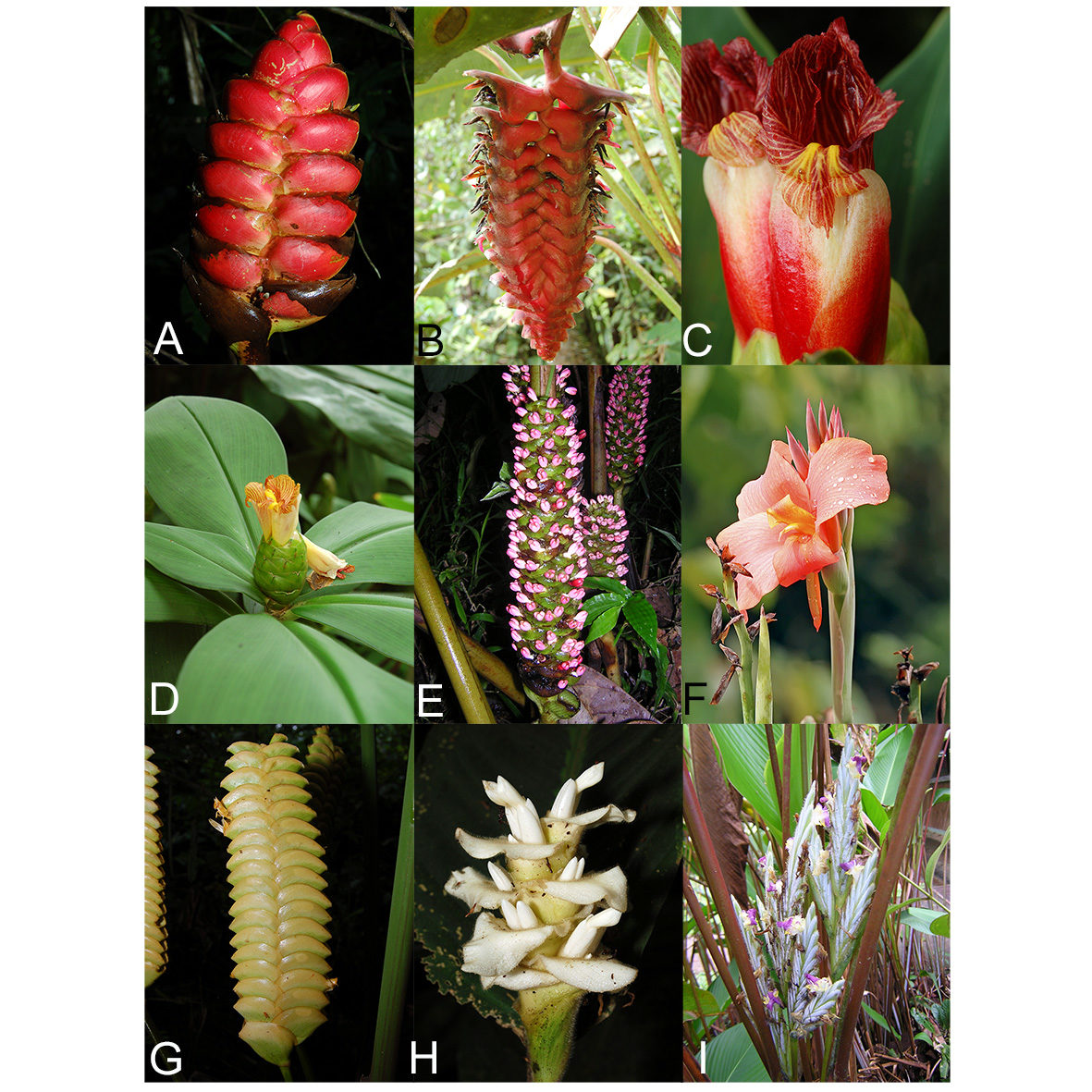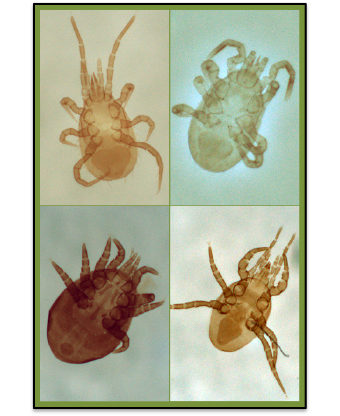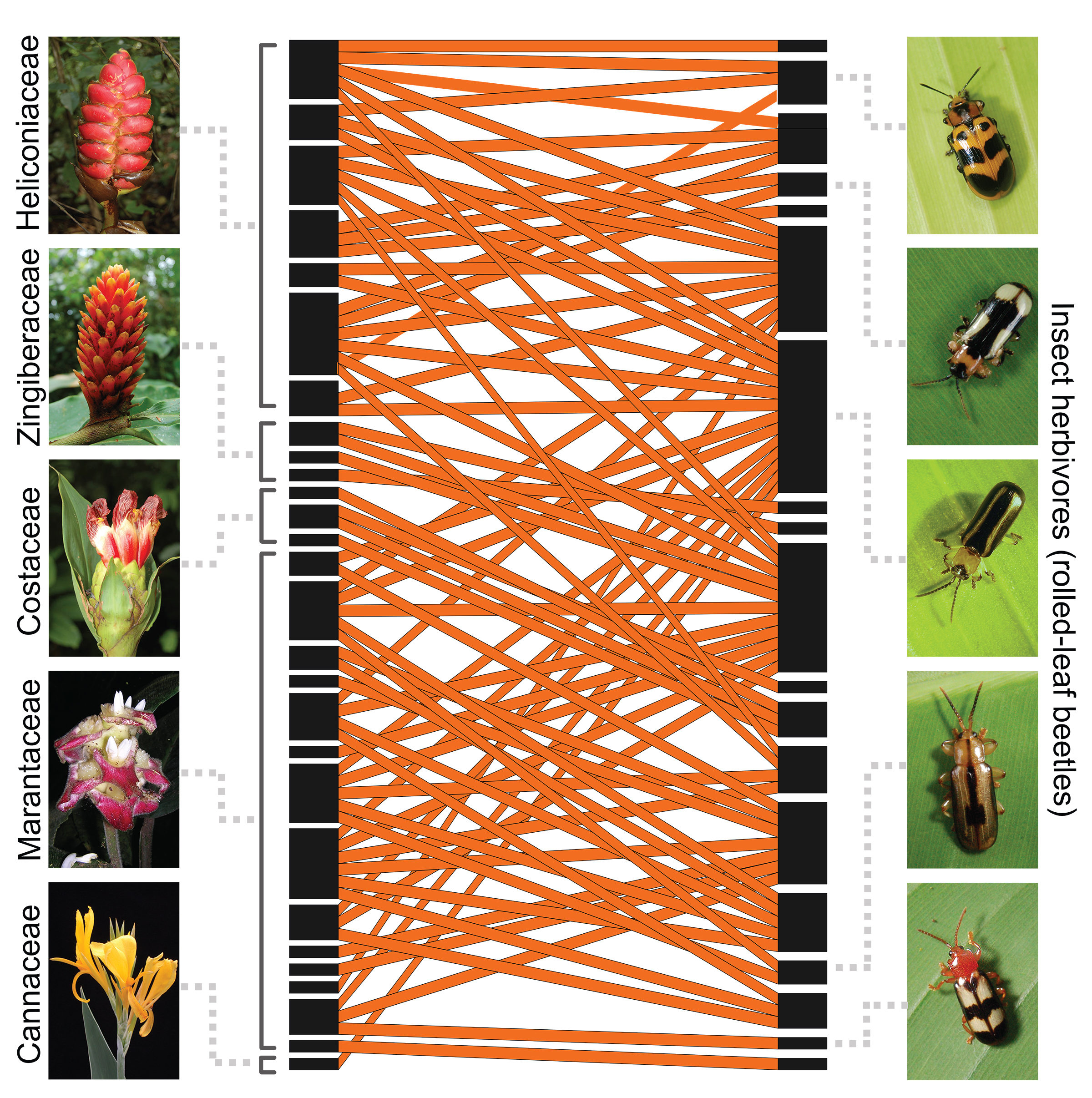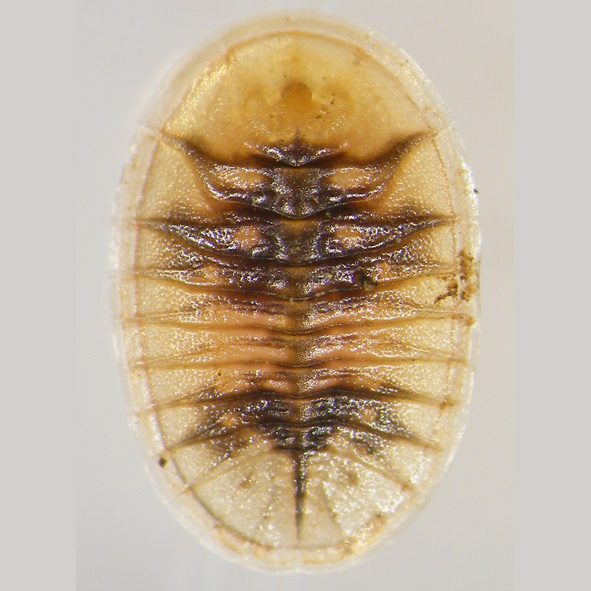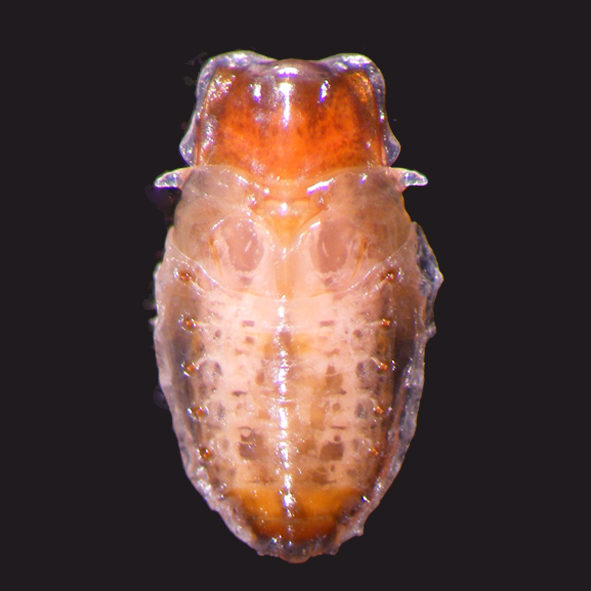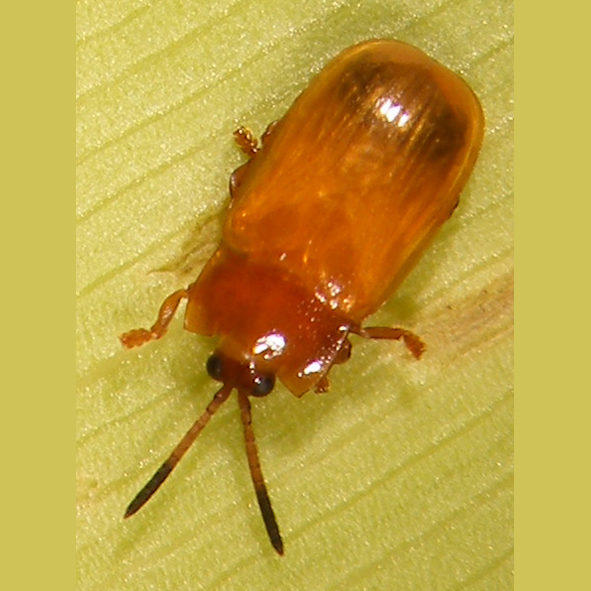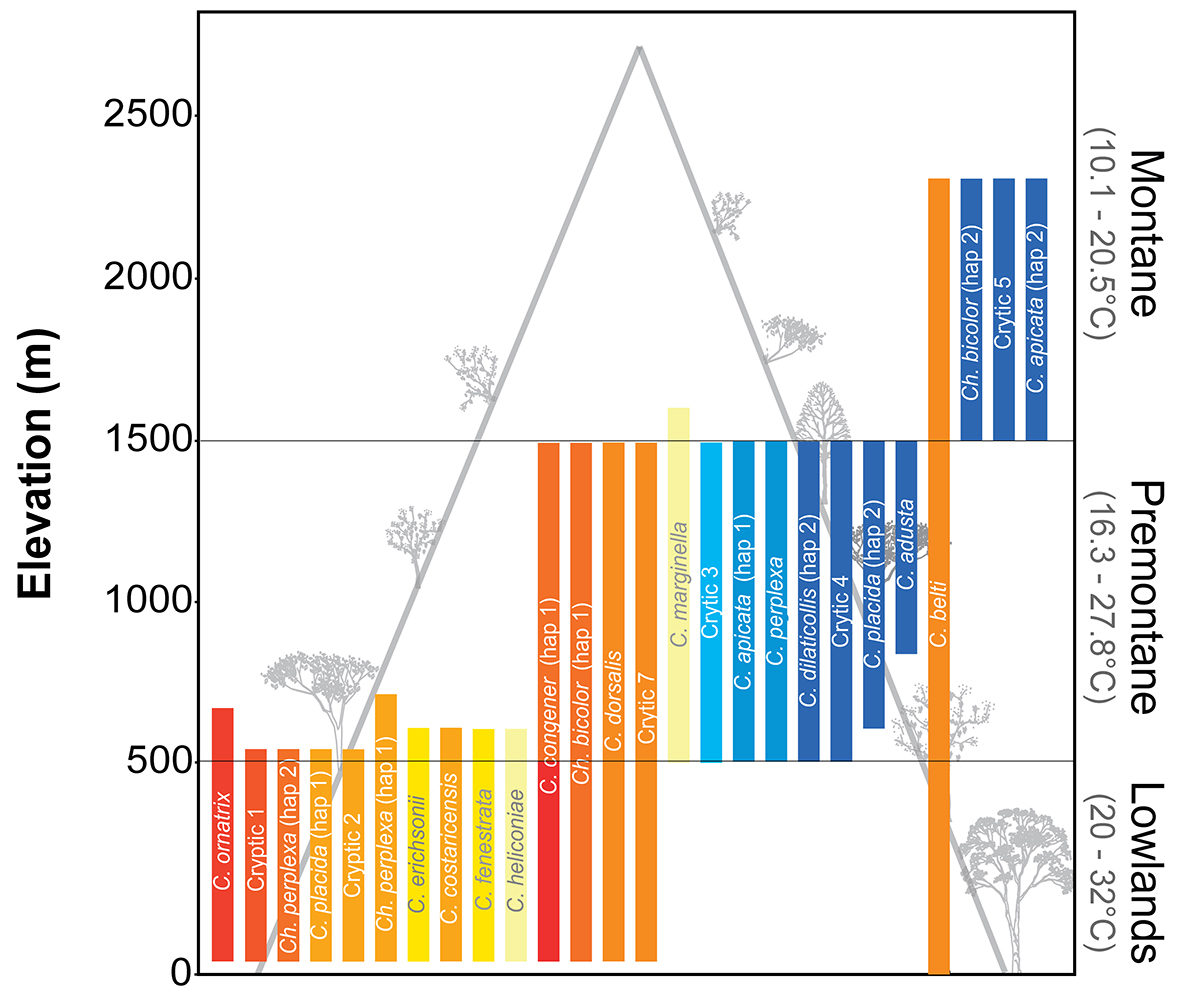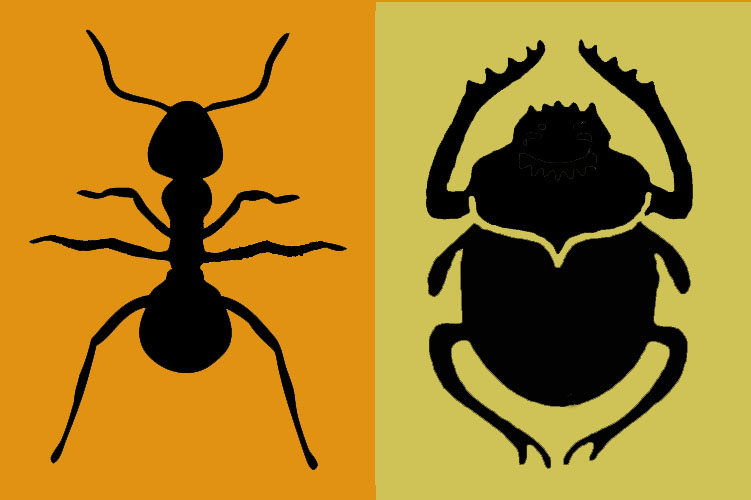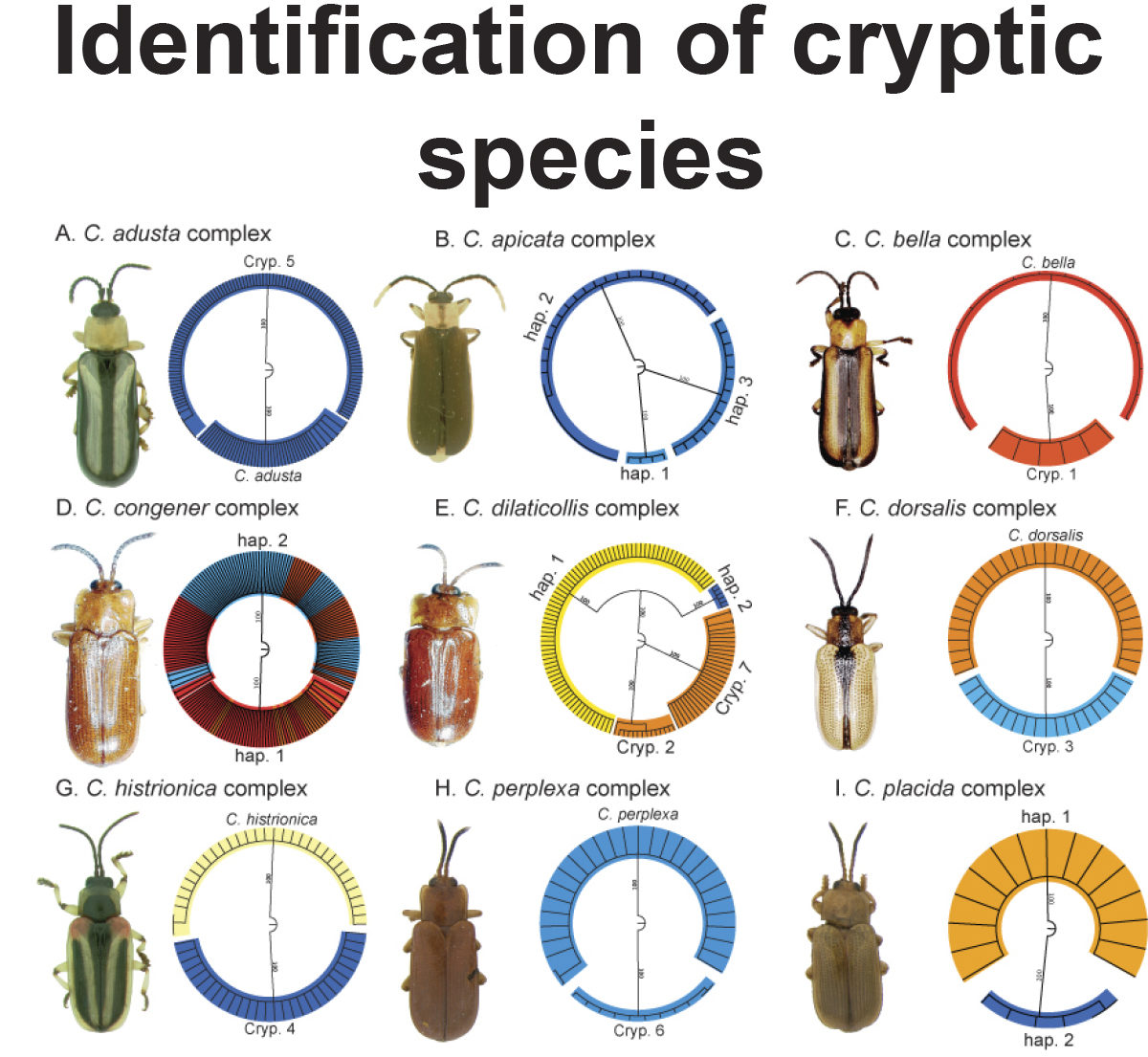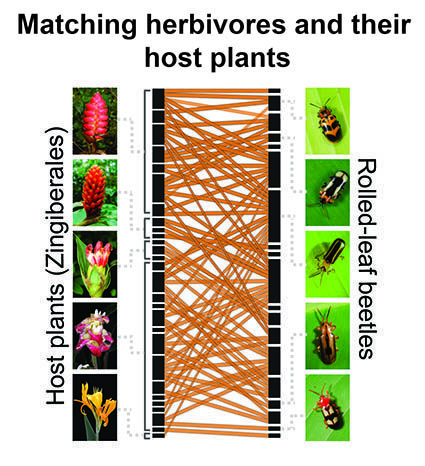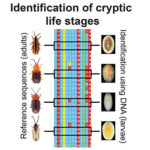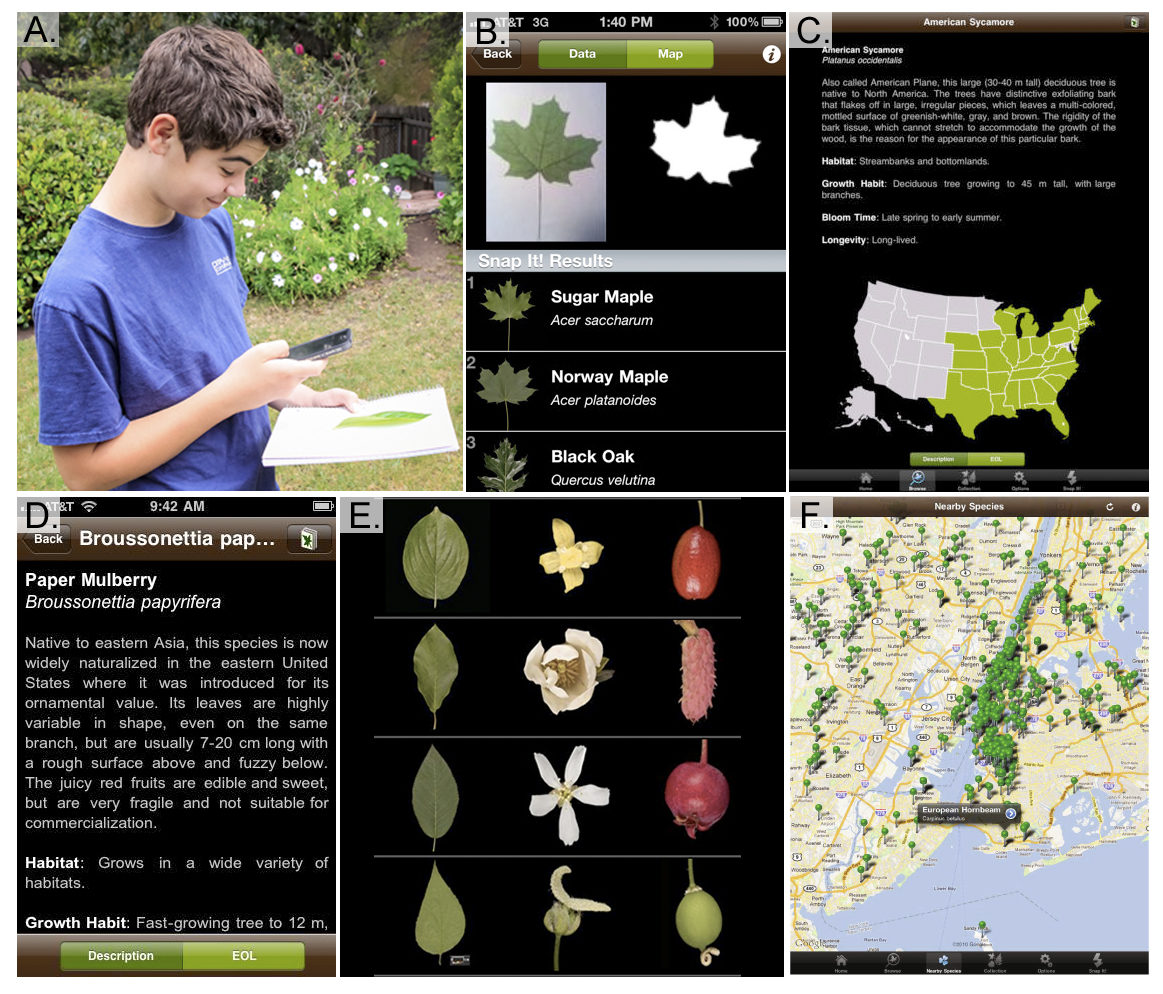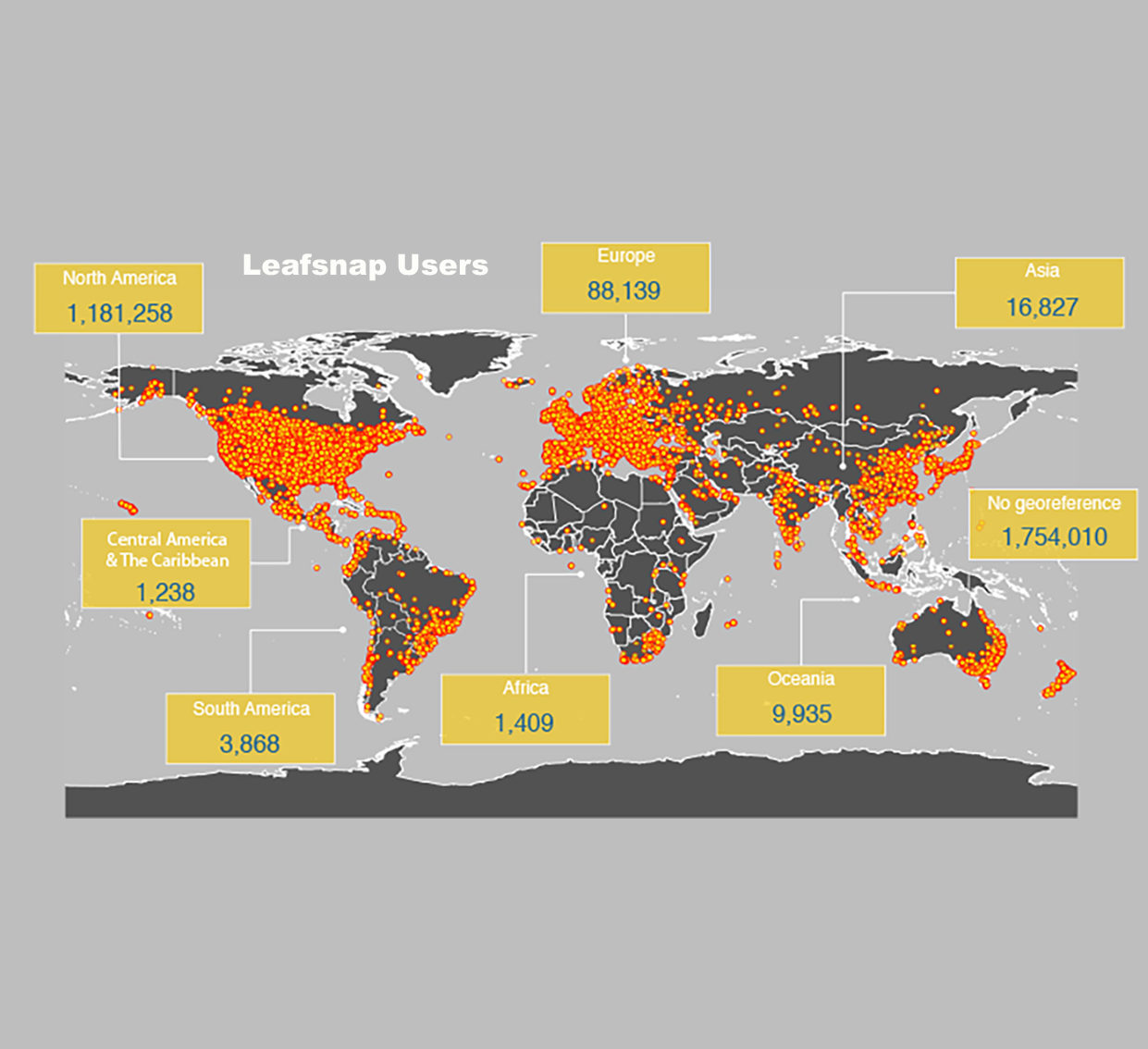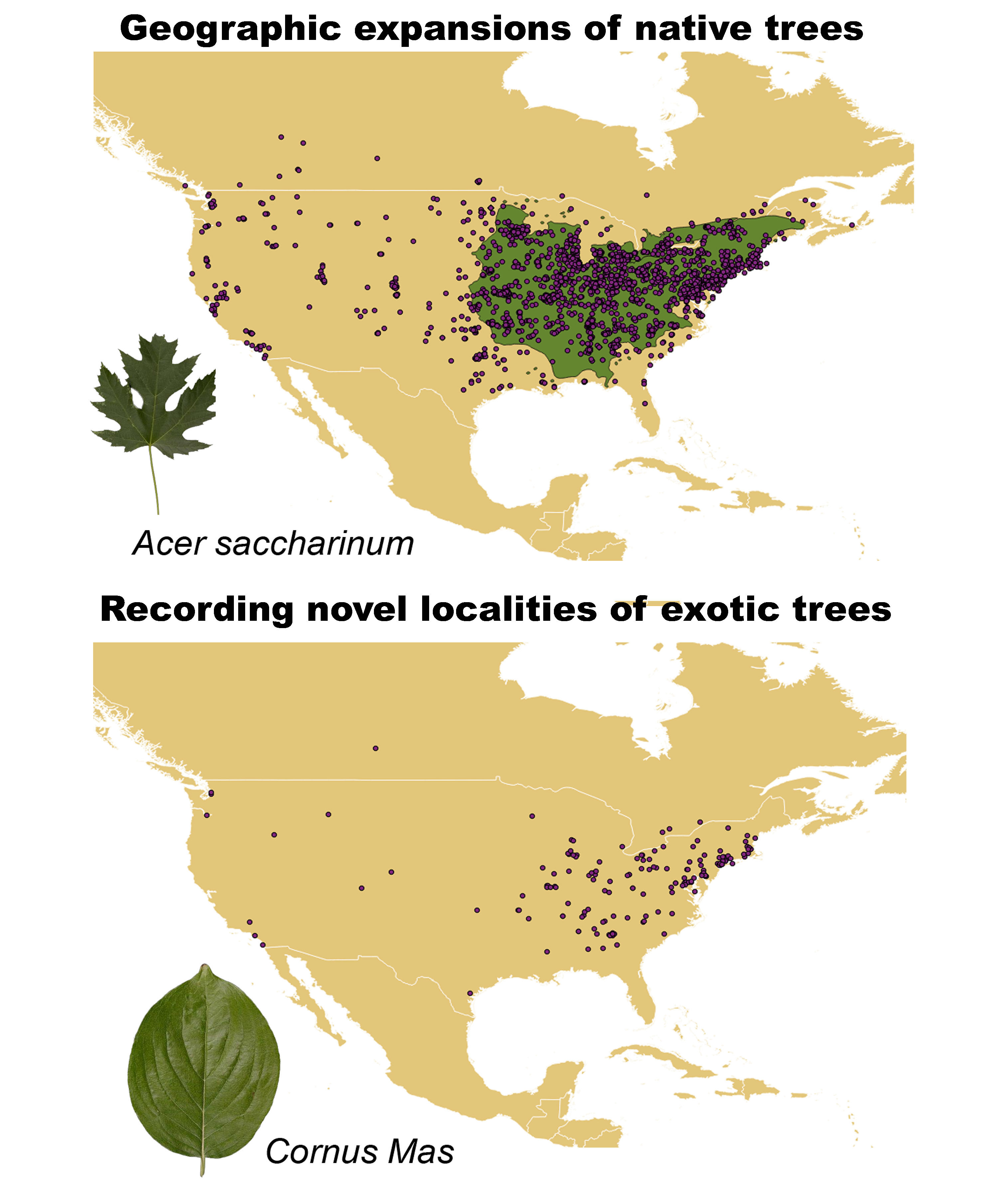Interactions, coextinction and elevational gradients
Combining mathematical models, molecular techniques and physiological studies, we are estimating plant extinctions and the risk of coextinction of associated insect herbivores, phoretic mites and insect gut bacteria along elevational gradients.
Demography and genetics of organisms in novel environments
To determine the effect of global warming or invasive host plants on insect survival, we are estimating the vital rates and fitness for insect herbivores when colonizing novel hosts, or when facing temperatures projected under global warming.
Thermal responses of arthropods to global warming
Survival of insect populations under projected global warming will depend on their physiological ability to survive and reproduce at novel temperatures. We are determining the plasticity of thermal limits of insects along elevational and latitudinal gradients.
Molecular methods to study interactions
In addition to theoretical tools, our laboratory uses molecular markers to delimit species, identify immature stages, and interactions among trophic levels (e.g., interactions between plants and insect herbivores using DNA extracted from insect gut contents, or DNA barcoding to identify phoretic mites).
Technology and citizen science for species identification
LeafSnap is a phone app. developed by researchers at the Department of Botany, Smithsonian Institution and Columbia University. Using information collected by millions of users all over the world, we are now tracking the distributions of native and exotic plants in North America.
Taxonomy and ecology of rolled-leaf beetles, Zingiberales and associated arthropods
A central study system of our laboratory are the interactions between rolled-leaf beetles (Cephaloleia, Chelobasis: Chrysomelidae) and their Zingiberales host plants (a group that includes the banana and ginger-like plants). Rolled-leaf beetles and Zingiberales are an emerging model system to understand ecological and evolutionary processes in plant-herbivore interactions.


